Top 9 Chess Tips for Beginners: Mastering the Game with Simple Strategies !

If you’re a beginner in chess and want to become a master, you must first learn these basic principles. This guide is key to improving your game, as we’ll discuss the top 10 practical chess tips for beginners. Whether you're playing just for fun or practicing for a competition, these tips will help you develop a strong strategy. So, let’s get started.
When it comes to chess, it’s impossible not to mention Mittimate’s Round Travel Chess. This travel-friendly chessboard is lightweight and features a storage box below to keep all your pieces organized, making it an excellent choice for beginners and seasoned players alike. Crafted from high-quality wood, this chess board ensures durability, and its compact size makes it easy to carry in a bag and take on travel. For those looking to explore other engaging strategy board games, there are many options available that also provide great mental challenges.
Chess Tips for Beginners
1. Capture the Middle Area of The Board
For beginners, I recommend placing your pieces in the center of the board and focusing on controlling the middle area (D4, D5, E4, and E5) first. There are 64 squares on a chessboard, but controlling these central squares gives you better opportunities to control the entire board and increases the mobility of your pieces.
2. Build A Strong Position
The second important strategy to win the game is to try to capture the major areas of the game early. Remember, beginners often make a mistake of moving a single piece multiple times in the beginning. So friends , instead of moving the same piece again and again, try to build a strong position by using all your pieces carefully. Aim to move each piece only one time in the opening and bring out your knights and bishops early, as these pieces help you better control the center of the board.
3. Play Your Major Pieces Instead of Pawns
We often see that beginners move only pawns, but playing with only pawns can leave your king vulnerable. While it’s important to capture the center area of the board and move enough pawns only, ensuring your king is safe. Instead of moving too many pawns, play with your pieces, building a strong position.
4. Avoid Isolated Pawns
Keeping your pawns connected to each other and providing support with other pieces is a great chess strategy and increases the chance of winning the game. So, make sure that you build a strong defense around all your pawns and pieces from the start of the match. Leaving any piece or pawn alone can lead to losing it. A well-coordinated pawn structure strengthens your defense and helps maintain control over key squares
5. Think Your Opponent’s Move
My next chess tip for beginners is to think one or two moves ahead. Make a plan to trap your opponent and then consider how your opponent might respond. Try to checkmate your opponent by building your strategy, but remember that focusing only on your opponent’s king can give them an advantage. So, make sure to attack while protecting your own king.
6. Be Familiar With Basic Tactics - Pins, Forks, & Skewers
Chess is a game of tactics as much as strategy. Beginners should familiarize themselves with common tactical ideas like pins, forks, and skewers. These tactical patterns can turn the tide of a game, allowing you to win material or position. Mastering these tricks will improve your play and increase your chances of victory.
7. Don't Use Queen Too Early
However, bringing the knight and bishop in early is considered good, as these players can easily control the center of the game, building a strong position. But many times, beginners bring the queen into the game first, as the queen is the most powerful piece on the board and it can move any number of squares horizontally and vertically. The queen can also move like a bishop (diagonally). Even then, I suggest using the knights and bishops first and making a strong structure providing support to each other, avoiding the queen until it’s necessary.
8. Don’t Forget Your King’s Safety
Protecting your king is as important as attacking your opponent’s material, as the entire game depends on the king. So, make sure to save your king early in the game. One of the best ways to do this is by castling, which moves your king to a safer position. Leaving your king exposed in the center can make it an easy target for attacks. Always try to shield your king behind pawns and keep it protected with other pieces.
9. Keep Your Rooks Free.
To free your rooks is essential in the game, as they can not only move vertically or horizontally but also move any number of squares. So, don’t keep your rook behind a pawn for too long. This is the second most powerful piece in the game after the queen and can help you greatly protect your king
Conclusion: How to Be Good at Chess as a Beginner
However, there are no tricks that ensure your winning, but a solid balance between attacking and defending can increase your chances of winning. To become a good chess player, beginners must follow the basic principles of chess that we discussed above. Use these chess tips as your guide, and keep practicing regularly. With time, your understanding of the game will deepen, and you'll be well on your way to mastering the art of chess
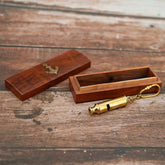

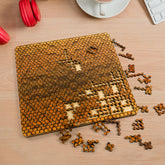

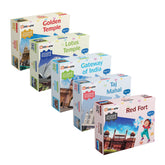

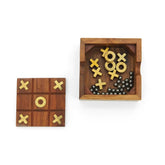



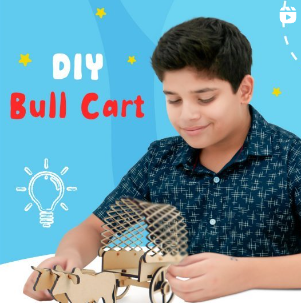
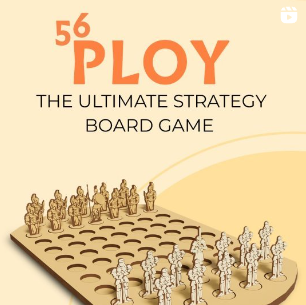
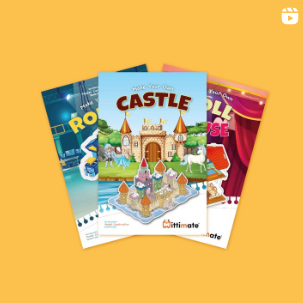
Leave a comment
Please note, comments need to be approved before they are published.